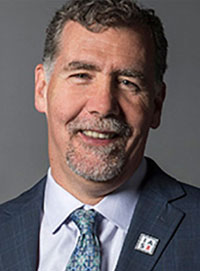

Are HIV and AIDS poised for a comeback?
Growing resistance to powerful medications cause for concern, review authors say.
(HealthDay News) — The advent of powerful drugs in the mid-1990s brought remarkable gains in survival for HIV patients who had access to the medications.
But a team of experts now warns that the global HIV pandemic continues and is at risk of expanding, given the worrisome global rise of HIV resistance to antiretroviral (ART) medications.
“Current trends in HIV drug resistance are very concerning,” said Dr. Chris Beyrer, lead author of an overview on the state of global HIV drug resistance.
“Resistance levels have been found to be highest in ART-exposed infants and children,” he added. “Which is a real concern, since children are already among the least-treated age group in many developing countries.”
Beyrer is professor of epidemiology with the Johns Hopkins Bloomberg School of Public Health in Baltimore.
He and his colleagues noted that roughly 19.5 million HIV patients — or approximately half the global population of HIV patients — are now being treated with ART.
The United Nations and the World Health Organization aim to eliminate AIDS as a public health threat by the year 2030. On the way to that goal, both organizations want to make sure that 90 percent of all HIV patients gain access to ART by 2020.
That will be “enormously difficult,” said Beyrer.
For one, WHO and experts from the U.S. Centers for Disease Control and Prevention acknowledged that ART effectiveness is increasingly at risk, with HIV drug resistance having shot up from just 11 percent in 2001 to 29 percent today.
Why? The review team noted that the “Achilles’ heel” is shoddy adherence to ART regimens, mostly because of insufficient education and insufficient access to the medications. Poor adherence allows the HIV virus to mutate and develop drug resistance.
To tackle the issue, the research team advocates placing more focus on prevention by hastening the development of an effective vaccine and by ratcheting up the use of Truvada, the HIV prevention regimen also known as PrEP. PrEP combines two ART drugs (tenofovir and emtricitabine), and the CDC says it can curtail HIV infection risk by as much as 90 percent.
At the same time, Beyrer said, those already infected but not yet treated should be given access to newer types of ART “cocktails,” including drugs such as dolutegravir that have “higher genetic barriers to resistance.”
That move alone, said Beyrer, would be “likely to have a major impact on resistance levels in the countries which go this route.”
Drug resistance may ultimately also pose a risk for PrEP, though for the time being Beyrer characterizes PrEP resistance as “very rare.”
“We need to be vigilant about this from a surveillance perspective,” he said, “but PrEP users should adhere to regimens today with confidence.”
Beyrer and his colleagues highlighted another concern: a looming threat by the U.S. government to sharply curtail global health funding.
“The proposed cuts from the Trump administration would have a severe impact on HIV treatment programs,” he said, “particularly in the poorest and highest prevalence countries in Africa, and of course in underserved communities in the U.S.”
“The Congress has so far resisted these cuts,” Beyrer added, “and we can only hope they continue to prioritize the support we need to finally control the HIV epidemic.”
Dr. Annette Sohn, from the global AIDS research advocacy organization amfAR, said she “agrees with the author’s [Beyrer’s] concerns around the current trends in resistance and their characterization of these as alarming.”
Sohn is based in Bangkok and serves as vice president of Global Initiatives for amfAR.
“To achieve true global success in preventing resistance,” she said, “we will need to create access to the best regimens for all people living with HIV.
“The proposed cuts to global HIV programs are of primary concern in this regard,” said Sohn. By doing so “we risk people losing access to treatment and stopping their medicines, which will lead to treatment failure, more new HIV infections, and increased drug resistance,” she added.
“Instead of cutting federal funding for HIV research,” Sohn said, “we need more support for implementation research to study how to optimally deliver testing and treatment services in cost-effective ways.”
The review is published in the Oct. 26 issue of the New England Journal of Medicine.
SOURCES: Chris Beyrer, M.D., M.P.H., professor, epidemiology, department of epidemiology, Johns Hopkins Bloomberg School of Public Health, Baltimore; Annette Sohn, M.D., vice president, Global Initiatives, and director, TREAT Asia, amfAR, Bangkok, Thailand; Oct. 26, 2017, New England Journal of Medicine
HealthDay
Copyright (c) 2017 HealthDay. All rights reserved.
News stories are written and provided by HealthDay and do not reflect federal policy, the views of MedlinePlus, the National Library of Medicine, the National Institutes of Health, or the U.S. Department of Health and Human Services.
From Medline Plus: Trusted Health Information For You, a service of the U.S. National Library of Medicine, National Institutes of Health


Be the first to comment